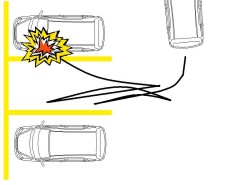A reader recently sent me an email explaining that she has not yet posted a comment on my blog even though she has wanted to many, many times because she wasn’t sure if I would welcome her presence and opinions here. She is a devout Christian who spends much of her time thinking, reading and speaking about her spirituality, and knowing that I am not religious and am sometimes critical of the incongruity and discrimination that certain aspects of religion seem to promote, she feared that I would be less than pleased about her participation on the blog.
I assured her that this could not be further from the truth.
When people ask about my religious belief, I tell them that I'm a reluctant atheist who would like to believe in a greater power but finds himself unable to do so. I'm a person who desperately wants there to be a benevolent God and a glorious heaven, but I simply haven't found the faith inside of my in order to believe this.
But this has not been the first time that someone has expressed a concern that I may be less than welcoming to people of faith, and each time it occurs, I find myself assuring the person that I am quite capable of being critical of an institution without feeling any animosity toward its members.
I have many, many religious people in my life, and they far outnumber the atheists, agnostics, secular humanists, and other non-believers who I know. In each case, I am exceedingly pleased to call these religious folk my friends.
My wife and most of her family are Jewish, and while much of their religion is more culturally-based than faith-based, Judaism is an important part of their lives.
For two years, I lived with a family of Jehovah Witnesses who were kind enough to take me in when I had no place to live. Out of respect for their beliefs, I attended services with them from time to time, and I loved them dearly. I have never met anyone more committed to religion than these people, yet we lived happily and peacefully under the same roof for a long time.
Clara’s godmother is a Protestant who is very active in her church. One of our closest friends is a devote Lutheran. On Christmas Eve, Elysha and I often attend midnight mass at one of these two people’s churches.
Another close friend and his wife are Christians who run a youth group at their church and attend services regularly. These services often interfere with his ability to play golf on Sunday, which is annoying, but that’s a different story.
My mother was Catholic, and I know that her faith brought her great comfort later in life.
And these are just a few examples.
At certain points of my life, I was also Catholic and Protestant. I was born a Catholic (as much as you can be born into a religion), and as a child, my mother sent me to CCD, as all good Catholic mothers are wont to do. But I returned home after my first CCD class renouncing Catholicism and refusing to return to the church.
For many reasons, Catholicism simply did not suit me.
In one of the most admirable parenting decisions of my mother’s life, she did not force her own religion upon me. She informed me that although I would not be forced to attend Catholic services or CCD, I would need to find a religion that I could accept. For weeks, she drove me to various churches in the area, allowing me to sit in on a variety of services, and I finally settled on a small, run-down Protestant Congregational church in my hometown. It lacked the ostentation and ritual of the Catholic Church. There were no stained glass windows, no burning incense and no padded kneeling bars. In lieu of wafers and wine, communion was given using grape juice and Wonder bread. The minister, a young and unassuming man, called all the children to the front of the church in the middle of services, sat down on the dusty wooden floor with us, and delivered a children’s sermon just for us, completely ignoring the adults in the room.
If I had to choose a church, this was the one for me.

I still was not pleased with having to attend church on Sunday or it’s on-again, off-again Sunday School (though Vacation Bible School, with its focus on athletics, wasn’t bad). Even at a young age, the seeds of my skepticism and propensity toward criticism had already taking root. But rather than requiring me to base my religious belief upon her own belief, my mother allowed me to find something that was closer and better aligned to what was in my heart.
A smart and unselfish Mom, if you ask me. Forcing a specific, religious belief upon your children seems crazy to me.
Hopefully this post makes my more religious readers feel a little more welcome to participate in the discussion. I may challenge the positions that religion takes from time to time, particularly when those positions infringe upon the rights of others or express bigotry or hypocrisy, but criticism and contempt are two entirely different things. While I may be awash in criticism from time to time (and perhaps too often), I reserve my contempt for those who truly deserve it.
The New York Jets
Militant vegetarians
People who text while driving
Morons who talk and text during movies
Golfers who insist on playing from the blue tees when they clearly shouldn't s
Anyone who wears pants with text scribbled across the butt




